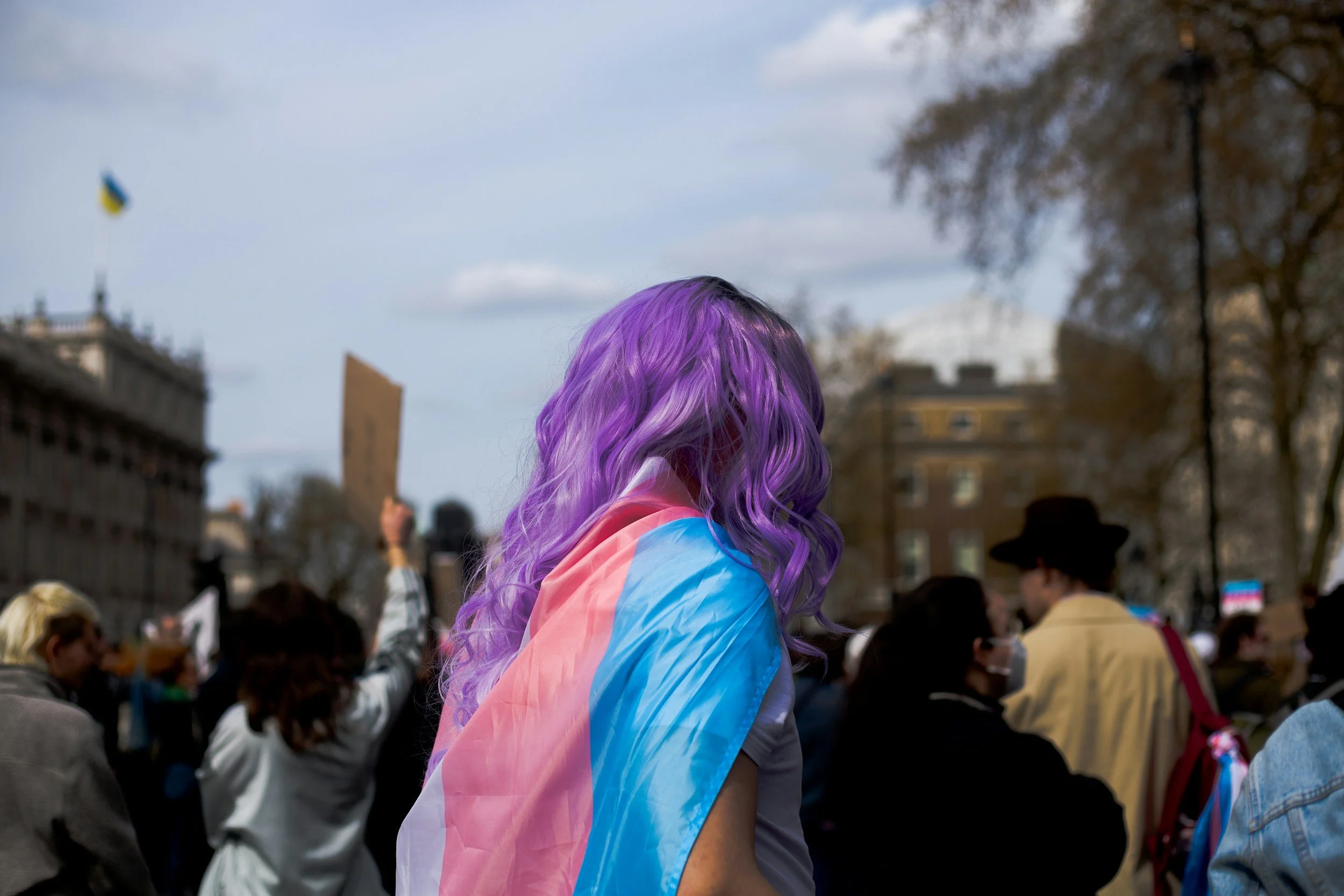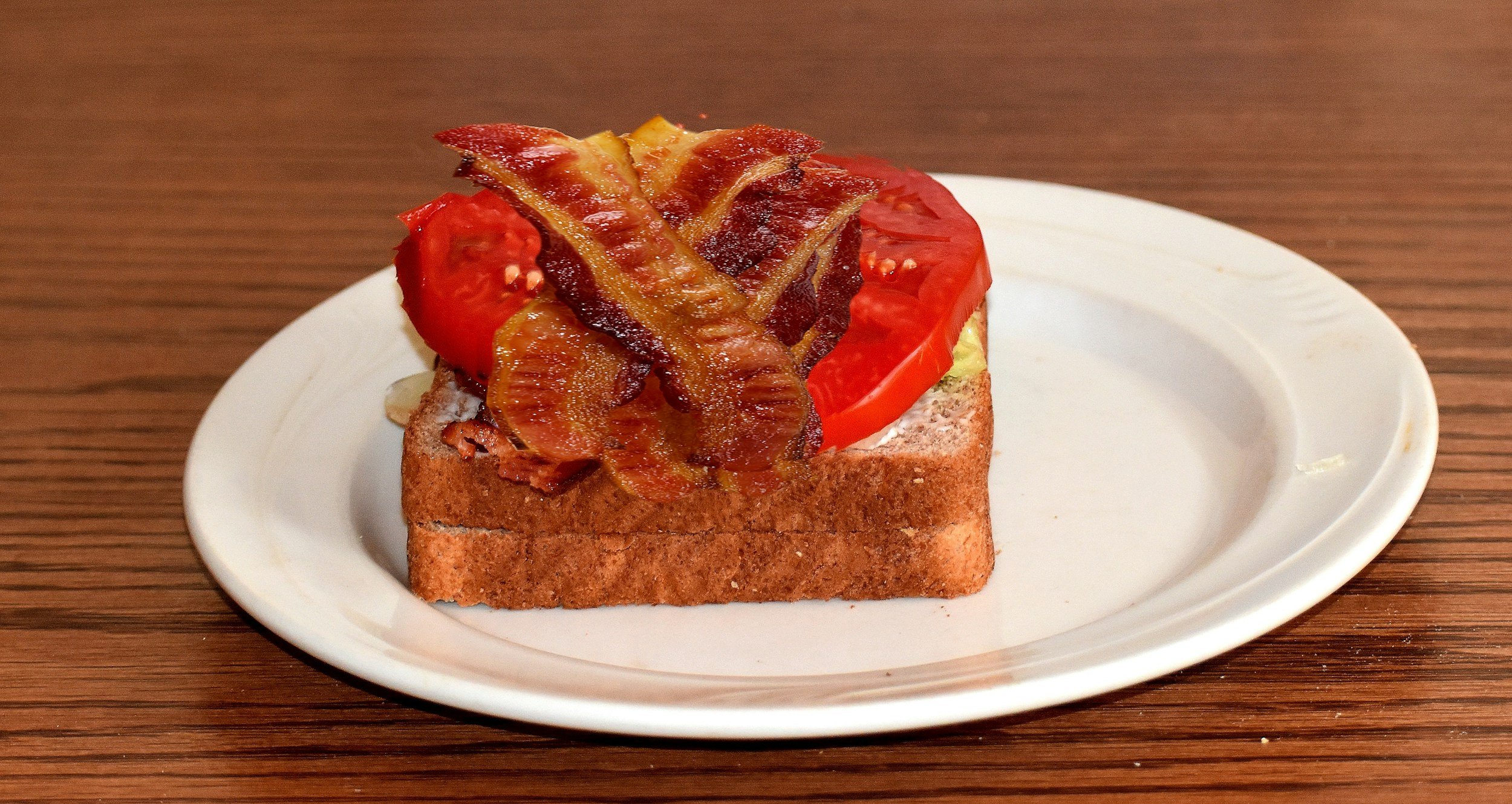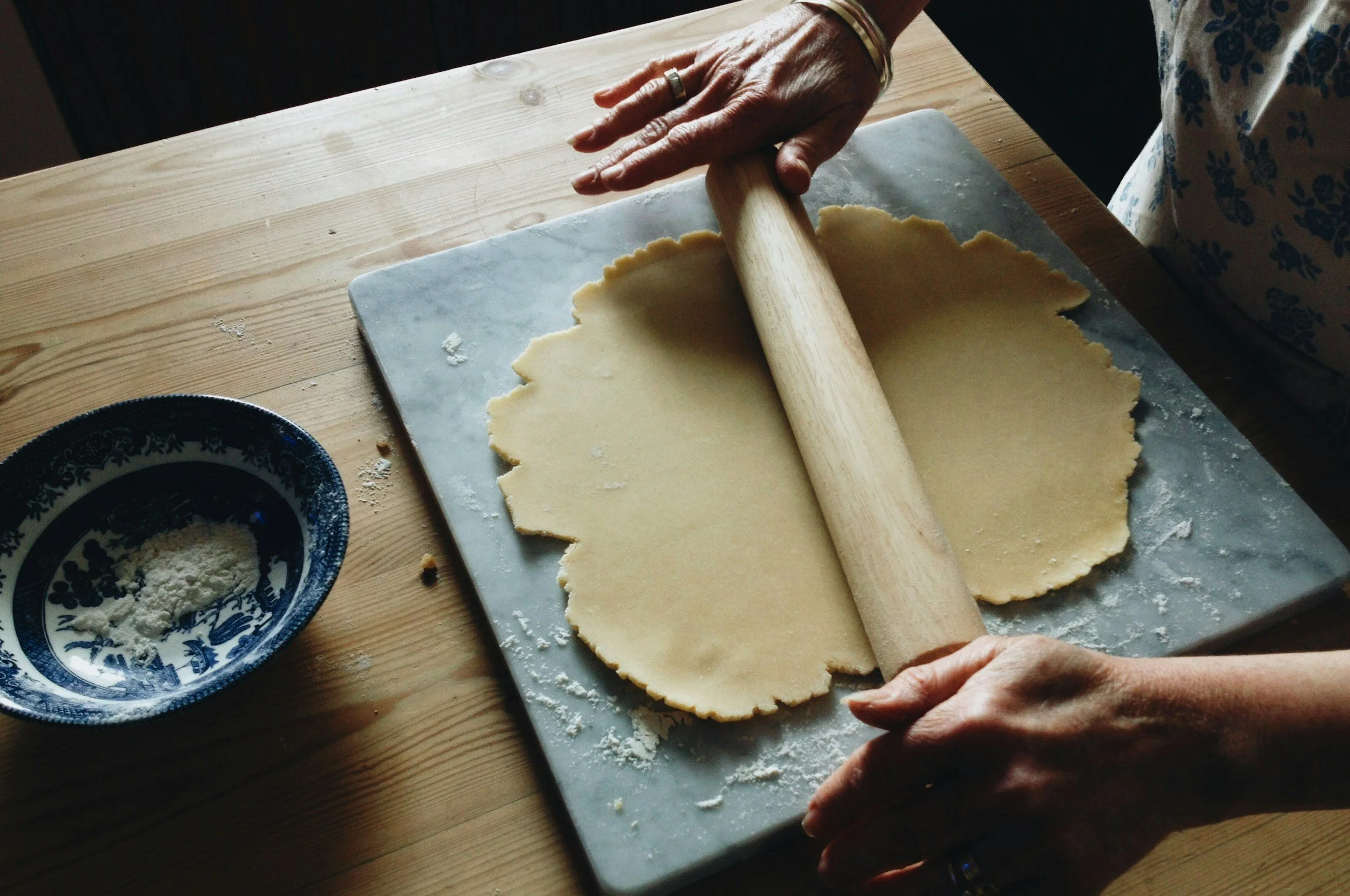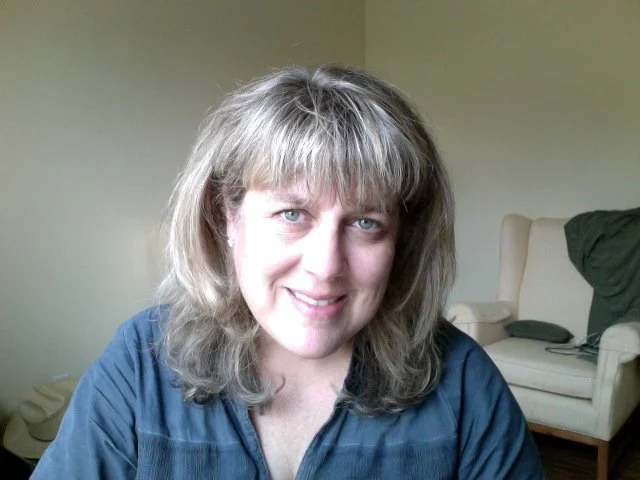One More Round
“I’m done,” says Leigh, her voice full of defeat. But she’s angry. There’s always anger.
I heave a sigh, and my shoulders slump. “I think I am, too.”
My eyes are puffy and red, my nose feels like it’s clogged with cement. I need some Advil. And a drink.
I gather up the used tissues that have amassed at the base of the trashcan, missed shots during a two hour phone call with my younger sister. We’d hurtled insults and accusations about who had hurt whom and why over the course of the last fifty years, a metaphorical tennis match of psychic pain. “It was always you and Mom against me,” Leigh lobbed up.
“At least you weren’t known as the worst big sister in the world,” I smashed back, a strong overhead shot right to her face. “I can’t do anything right. You think you had the worst of it, Leigh. You never see my side of things.”
“I felt totally unloved, Amy!”
Game. Set. Match.
She had me there. I did feel love from my parents when I was growing up. I just didn’t realize that love was conditional and came at a cost.
Leigh has always been the more loving, caring, sensitive sister; I, the strong, mature, cold, aloof, bitch. Narratives authored by our parents, mostly by our narcissistic mother. It would’ve been nice to at least have a father who was clued in to the emotional atmosphere of the house, but no, he didn’t know how to handle emotions or set proper boundaries either. It was easier to label and ridicule than deal head on with sibling rivalry. Leigh and I had been opponents from birth. We never stood a chance.
“You two don’t know how lucky you are to have a sister!” Mom would chide when we were younger. “I would’ve killed for a sister.”
And she did, in a way. She planted herself firmly between me and mine, destroying any close relationship Leigh and I might have had.
It would be years before I realized Mom was the problem, pitting us against one another, the tennis coach standing at the net, tossing balls for opponents to bat back and forth.
*
Being the firstborn was no more my choice than it was Leigh’s being born to “save” our parents after having lost a child. I had a younger brother who contracted a rare form of encephalitis when he was an infant and died at the tender age of thirteen months. My mother got pregnant right away—advice from her gynecologist—so she would have another baby to love and care for soon after the loss of her second child.
Mom would go on to have two more children, my sister and brother. Leigh arrived first, a mere six months after Mom had suffered a parent’s worst nightmare. She came back to life after Leigh was born. I was three-years-old then, and I stood at the foot of the changing table in the nursery, with its yellow walls and teddy bear curtains, wearing my denim Oshkosh B’gosh overalls and clutching Fluffy, my stuffed rabbit. Diaper pins with pink plastic ends were un-clipped, Leigh’s chubby bottom was wiped, and padded with a freshly laundered cloth diaper. Mom serenaded Leigh with “Close To You,” a song popular at the time. Something about angels getting together on the day Leigh was born, and sprinkling moon dust in her hair, whatever that was.
“Did you sing songs to me, Mommy?”
Leigh started to wail. I gripped Fluffy tighter and stood against the wall, out of the way. Mom scooped Leigh up and brushed past me to warm a bottle and feed my sister.
At least Mom wasn’t crying as much as she used to, like months earlier, when she was curled up in a ball on the couch, and I’d shoved one of my dolls in her face and asked her to play with me.
She pushed the doll away. “Go play by yourself,” she’d said. “Mommy needs time alone.” Then she turned into the couch, her back to me.
I retreated to the living room, and hid behind a green and blue floral wing-backed chair. I rocked my doll back and forth and murmured, “It’s okay, it’s okay.”
Fifty years later, my mother still loves to tell that story. “You were the best little girl,” she’ll say. “You were always so mature for your age.”
*
By the time we were teenagers, the strings of our metaphorical tennis racquets were starting to fray. I’d been too busy reading Mom’s moods and trying to keep her happy. I didn’t have energy to give towards nurturing a relationship with my little sister, never mind my little brother who was always getting into trouble for something.
The world of adults always won out over Leigh and David. I just couldn’t be bothered by them. Besides, by that time I’d amassed an arsenal of jealousy towards Leigh who was everything I believed I wasn’t: loving, caring, sweet and sensitive, thin, tall, smart and pretty, although Leigh’s good-hearted traits could be a conundrum. On one hand, Mom would throw these qualities in my face to guilt me. “Leigh is loving and sweet. I don’t understand why you don’t like her,” she would say, and my insides would ball into a knot. Something had to be wrong with me. I was mean. Why didn’t I like my sister?
But then Mom would turn and use those traits against Leigh, whenever sweet and sensitive became irritating and overwhelming.
“Everything hurts her feelings,” she would say. “She takes everything wrong. I can’t talk to her like I can talk to you.”
The tenor of things became even more confusing when Mom would turn against me. Strong and mature became “cold and aloof.” At fifteen, I was full of teenage angst and irritability, all attitude and snark. If I was ever rude or impudent to other adults, when I would embarrass Mom, I became her enemy.
One time an aunt and cousin were visiting from the East Coast. “Are you coming to the movies with us?” my aunt asked.
“Pfft,” I replied. “I’m not going to any stupid movie. I’m going out with my friends.”
Mom grabbed me by my shirt sleeve and yanked me into the hallway.
She put her face close to mine, and pointed her finger at me. “You are cold and aloof,” she hissed, teeth gritted. “You put people off.”
I shuddered, as she pulled away from me, scowling, her eyes deadlocked with mine. Humiliated and shamed, I slunk upstairs to my room.
I never fully understood what “aloof” meant until I was a junior in high school, and by then, it’d become like a patch stitched on to my Varsity tennis jacket.
*
By the time Leigh and I were both in our mid-thirties, we had families and children of our own. Now in charge of raising the next generation—she of two boys, and I of two girls—we were still plagued by old hurts. Mom remained smack dab on center court. We didn’t get together often, but when we did, the tension rivaled of Serena and Venus in the finals of the U.S. Open, except they probably cared about each other more than Leigh and I did.
No one outside of the family would have detected any change in the atmosphere, and even those in the family wouldn’t always notice. My husband, Scott, for one. He never seemed to pick up on the subtle messages transmitted between Leigh, Mom and me. It was so frustrating when I would vent to him and he missed everything that had transpired.
“You always know when Leigh has reached her limit,” I said to Scott as we cleaned up the kitchen. My family had just left after spending Christmas Day at our house.
“What do you mean?”
“You didn’t see the eyeballs she sent to Matt after the present game?”
“No.”
“She absolutely shot him a look. She was ready to get out of here.”
“You guys seemed okay to me,” says Scott.
“Who knows what pissed her off. Probably something Mom or I did,” I said. “But she couldn’t get out of here fast enough.”
These gatherings didn’t always devolve into an argument, but if they did, we would later speak on the phone and apologize and work things out, until the next get together; cordial and civil, but still with issues simmering beneath the surface.
Until then, I believed Mom was on my side of most arguments. We thought the same, believed the same, we were basically the same person. Leigh was the issue, she was the problem. She was the one who was too sensitive, the one around whom we couldn’t relax, the one for whom we tiptoed around on eggshells. So it came as quite a shock to me during another argument over the phone when I was sharing these complaints with Leigh, and she said, “Amy, do you think Mom doesn’t complain to me about you?”
I sucked in a quick breath. “What?”
“Do you think she only complains to you about me? You never stop to think it might happening the other way around?”
I felt like a cartoon character who’d just gotten smacked in the face with a shovel.
A knot developed in my throat. I sat down on an antique chair at my kitchen table. “No,” I admitted.
“Well she does,” Leigh spat. “All the time. Says how you’re bitchy and cold.”
I felt like an idiot. How could Mom do that to her best friend?
I didn’t think Leigh and I would speak after that fight. I remember thinking it was the end, and I remember being okay with that outcome. I believe Leigh felt the same as well.
*
Our father had been a lifelong, Type I diabetic. A few years ago his health started to decline and dementia set in thanks to the build up of toxins in his bloodstream due to his failing kidneys. Mom fell apart because she had been Dad’s caregiver the better part of fifty years, and the pressure of caring for him and running a household on her own began to take its toll emotionally. She wound up having a nervous breakdown.
I’d spent a whole day with Mom in the Emergency Room trying to get her help. This ER was ten minutes down the road from Leigh’s house, 45 from mine. When things had settled down, and Mom was waiting to be transferred to a behavioral care facility, I called Leigh to see if she could take a turn sitting with Mom.
“No,” she said flatly.
“Please. I’ve been here all day. I’m exhausted.”
“Don’t ask me to help with Mom and Dad,” she said. “Don’t ask me to come sit by a bedside, don’t ask me to hold a hand, don’t ask me for any help with them. Ever.”
She is so fucking selfish, I thought.
I looked over at Mom dozing on a gurney, IV taped to her arm, Valium seeping into her vein.
“Call David,” Leigh said, then hung up.
I knew the responsibility of caring for Mom and Dad would mostly fall on me. Being the eldest, having the closer relationship with them meant I would bear the brunt of the responsibility, but when it became apparent that Mom and Dad needed serious help, and my sister said she wanted no part of it, I truly believed our relationship was over. If she could pull away, so could I.
My brother later told me, “Leigh said you’re getting what you deserve.”
“That’s nice.”
“Yeah, Leigh can be tough,” he said. “She holds on to so much anger from when we were kids. She needs to get over it.”
We all need to get over it, I told myself. I also felt myself wanting to defend Leigh. You don’t get it, I wanted to say to David. You have no idea what went on between Leigh, Mom and me. You don’t get to tell us to get over it.
That year of caring for our parents was awful and stressful and fraught with tension. Leigh and I didn’t speak much, only when we had to deal with legal or healthcare matters. One time, a conversation collapsed into me telling her she wasn’t being a good daughter while also pointing out that I was doing everything for Mom and Dad and Leigh responded with, “I’ve been learning about Family Systems Theory. Maybe you could look into it, and we could discuss it sometime. I would be open to such a conversation.”
We hung up, and I rolled my eyes at my husband. “Sounds like someone’s back in therapy.”
*
After my father died, I started to see my family relationships differently. For whatever reason, his absence provided the space and clarity I needed to honestly assess my screwed-up family dynamics and my tenuous relationship with Leigh.
I went back into therapy, my tenth go-round since the age of twenty, and I began reading books about narcissistic mothers. I learned I was the “Golden Child” and Leigh was the “Forgotten Child” I learned how my mother had interfered with and hindered my relationship with Leigh, how enmeshed I was with my parents and grandparents, how I’d always wanted to please them instead of align with my younger siblings. For me, enmeshment meant survival; for my sister, it meant pulling away and removing herself from the family.
A week had passed since our last go-round. I’d done a lot of thinking and looking inward, working on certain points with my therapist, so I took a deep, cleansing breath, and called my sister. Even though she could see who was calling, she answered.
“Hey,” she said.
“Hey. How’s it going?”
She paused. I wondered if she was feeling what I was feeling—like here we go again, round ten million and six rehashing history and hurts. “Okay, I guess.”
“I’m sorry about last week,” I said.
“Me, too.”
And then, something my therapist told me to say, “I’m sorry you’ve felt left out your whole life.”
She half-laughed. “I have been left out my whole life,” she said. “It has always been you and Mom against me. You’ll never understand that.”
Her words hurt, but they made me stop and recall one of the worst exchanges I ever witnessed between her and Mom; a day that should have been happiness and light, but had collapsed before we got started.
We were set to go shopping for my wedding gown, and Leigh had been in a foul humor all morning, for what I can’t recall, but I remember thinking she was being irascible on purpose, to ruin what was supposed to be a special day.
We got in the car, Mom in the passenger seat, and Leigh in the back. Leigh’s bad mood had pushed Mom to her limit. She turned to Leigh and said, “You know what, Leigh? Fuck you!”
Leigh’s face blanched, as I’m sure mine did. Mom had never used that word, especially not in anger, and never directed at one of us.
Leigh started sobbing. She got out of the car and ran into the house. Mom followed. I stayed put. Their words and upset were like tennis balls being shot at me from the ball cannon we used during practice. I wanted nothing to do with their fight. I secretly hoped Leigh would choose to stay home and lick her wounds, but thirty minutes later, they both emerged from the house and got back into the car.
“Everything okay?” I asked.
“We’re fine,” Mom said.
I looked in the rear-view mirror and Leigh’s blotchy, tear-streaked face was turned towards the window. She remained silent.
As I pulled out of the driveway, I tried to wrestle with the events of the last few hours. It was one of the first times as an adult I’d felt bad for my sister. Mom may have snarled at me at times, but she would have never used such a harsh curse against me. She would say she never had to, but she didn’t have to speak to Leigh like that, either. Leigh didn’t deserve that from the woman who was supposed to love her—both of us—unconditionally. Guilt washed over me for being the favored child. It wasn’t right what Mom had done to us, and I was beginning to feel complicit for talking about Leigh with Mom, although it would be years before I changed my behavior.
I wanted to say to my sister, You’ll never understand some things, either, but I stopped myself. It had to stop somewhere. Anyway, she was right. There are things I’ll never understand, and there are things she’ll never understand, and that’s okay. I was tired of batting balls back and forth. I was tired of being resentful and angry, tired of allowing ancient history to play such a major role in our current lives. I chose to give her another chance, just as she was giving me.
*
We start doing things together, just Leigh and me, making actual, quality time for one another. Awkward moments abound when we’re alone together. Silence stretches out over the crunching of salad until one of us thinks of something to say. My therapist had suggested I ask Leigh simple questions like, “What’s your favorite color?” in order to get to know her better.
I smile and shake the thought from my head. I reach for my glass of water.
Leigh stares at me. “What are you thinking about?”
“I was just thinking of something my therapist said. It’s silly.”
“Dad used to do that, you know.”
Our father often had internal conversations with himself and then shake his head at whatever he was thinking. It was one of his idiosyncrasies we’d teased him about.
I smile. “I remember.”
“So what did your therapist say?”
I try to conjure up something profound, but then decide to be honest. “She said I should ask you simple questions as a way of getting to know you better, on our own, as adults, without Mom around.”
“Okay.” Leigh looked down at her lunch, and I spotted a slight, wry smile. “What do you want to know?”
“What’s your favorite color?”
Leigh laughed. “Really? That’s the question?”
“She suggested I start small and simple,” I said, chuckling as well.
“Blue,” she answers.
“Hey,” I said. “Mine, too.”
“What was your favorite book from childhood?” she asks.
“James and the Giant Peach.”
“No way,” Leigh says, her eyes wide. “That’s my favorite story. I loved that book!”
By the end of lunch, we discover more commonalities—favorite movies, favorite songs, favorite writers.
We pay the bill and head out to see the Wednesday matinee of Wicked. We’ve decided to make this lunch and show an annual “Sisters Day” outing in the city, a day for us to be together and celebrate surviving our upbringing. Leigh and I can’t afford to lose each other. No one else understands what we’ve been through.
We start sharing our experiences of what we’ve learned in therapy, and different books we’ve found helpful. Late one spring, I’m sitting poolside in Key West, reading a self-help book about growing up in an emotionally unhealthy household. I take a picture of the cover and send it to Leigh.
Some light beach reading, I text.
A laughing emoji pops onto my phone’s screen.
I rest my head back on the lounge chair, and tilt my face up towards the sun. A bead of sweat rolls down the side of my face, and the scent of coconut sunscreen floats through the air. Gratitude for all of the second chances Leigh has given me filters down through the sun’s rays, second chances I probably didn’t deserve.
-Amy Simonson
Amy Simonson is a former Labor and Delivery nurse and closeted writer who now sends her work out into the world. She has two daughters, and lives in her now empty nest with her husband of 32 years, and their three dogs in northern New Jersey.




















